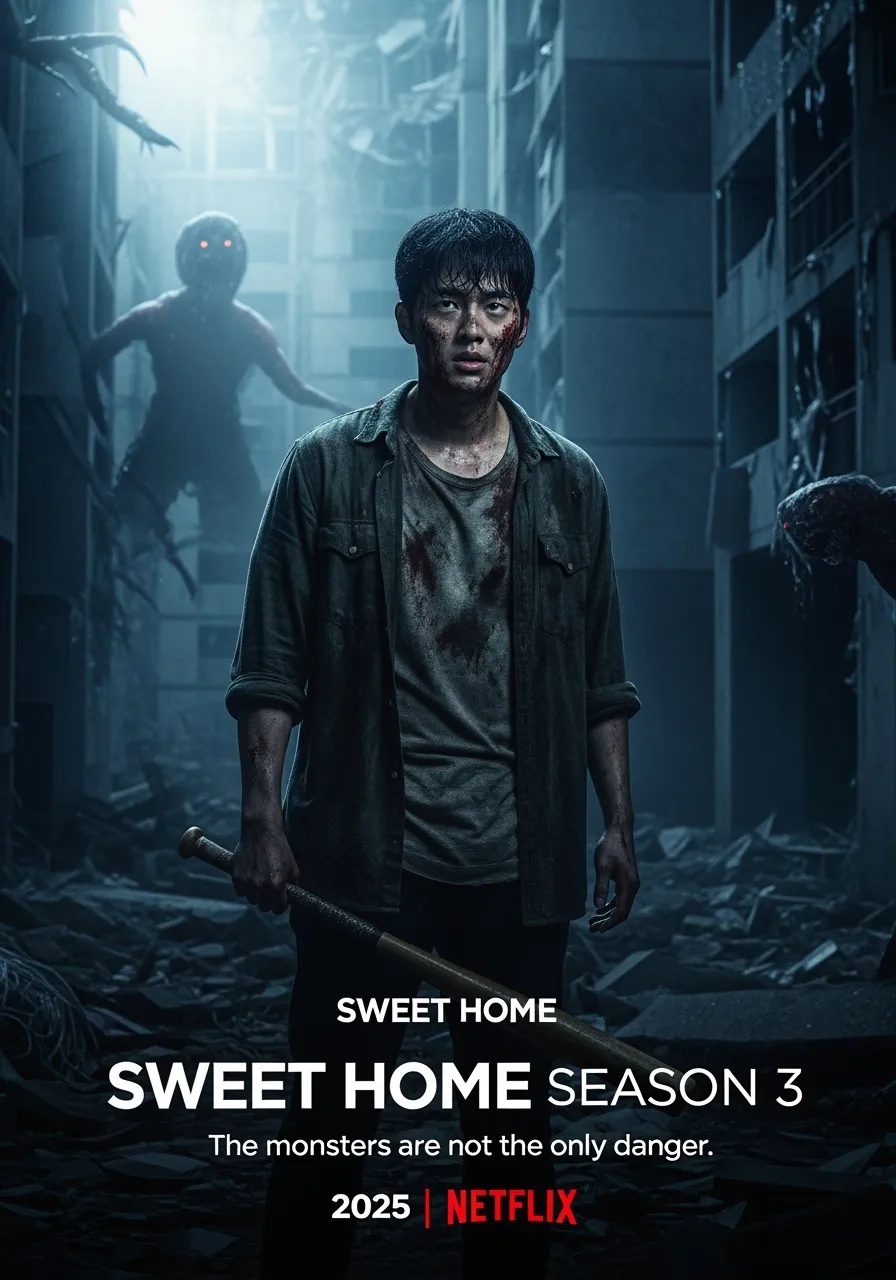I. PLOT OVERVIEW
In Intruder, director Sohn Won-pyung constructs a thriller that blurs the boundaries between memory and manipulation, family and threat. The story follows Seo-jin, a grieving architect struggling to cope after the recent death of his wife. Just as his life begins to unravel under the weight of guilt and trauma, a woman claiming to be his long-lost sister Yoo-jin suddenly returns after being missing for 25 years.
Though his family welcomes her with open arms, Seo-jin senses something is wrong. Her presence is unsettling. Her answers don’t quite fit. And soon, the people around him begin to change—becoming colder, more distant, almost... possessed. As he digs deeper into her past, a terrifying truth begins to surface, revealing a conspiracy that may not only threaten his sanity—but cost him what’s left of his family.
II. THEMES & PSYCHOLOGICAL TENSION
Intruder is built on paranoia, grief, and the unreliability of perception. It asks one central question: what if the people you love most become strangers overnight?
The film plays like a slow-burning nightmare. Seo-jin’s world is unraveling at the seams—not through violence, but through subtle, almost invisible shifts. Conversations become colder. Memories begin to contradict. Warm family dinners curdle into moments of quiet dread.
As the story unfolds, we see the horror is not just about Yoo-jin’s identity. It’s about how easily we accept comfort over truth. How families, desperate to feel whole again, may welcome danger just to fill a void. And in that quiet desperation, the film roots its fear—not in jump scares, but in the sickening realization that what’s familiar can be the most dangerous of all.
III. CHARACTER STUDY
Kim Mu-yeol’s portrayal of Seo-jin anchors the film with emotional exhaustion. He is not a heroic figure, but a broken one. His grief over his wife’s death, his unresolved trauma over his sister’s childhood disappearance, and his growing sense of being gaslighted by his own family—all combine to create a man who is unraveling from the inside out.

Song Ji-hyo, cast against type, is chillingly ambiguous as Yoo-jin. She blends kindness and eeriness in equal measure, playing the role of a loving sister with just enough hesitation to make you doubt every word she says. Her smile is soft, but it never reaches her eyes. Her warmth feels rehearsed. And the question lingers: is she really his sister… or something far more insidious?

Together, their dynamic fuels the film’s unease. Every scene they share becomes a battle of truth versus illusion, memory versus manipulation.
IV. DIRECTION, STYLE & ATMOSPHERE
Sohn Won-pyung’s direction is deliberate and unnerving. The film doesn’t rush. It lets tension build slowly, layering scenes with subtle details: a too-quiet hallway, a side glance that lasts too long, a moment where someone says exactly what you wanted to hear—too perfectly.
Cinematography plays with light and space to isolate Seo-jin, often framing him in empty rooms or tight angles that amplify his psychological claustrophobia. The house, once a safe space, begins to feel like a maze. Even in daylight, the air feels heavy. Untrustworthy.

The score underscores this discomfort. Strings hum quietly in the background, never overwhelming, always lurking. It’s a film that breathes in whispers and builds its suspense in silence.
V. FINAL VERDICT
Intruder is a restrained, atmospheric thriller that doesn’t need gore to terrify. Instead, it suffocates the viewer with slow dread, forcing us to ask what we would believe—or ignore—for the comfort of having family again.

It is about the dangers of blind acceptance, the cost of unresolved grief, and the terrifying possibility that love can be used as a weapon. Not all horror lives in the dark. Sometimes, it walks through the front door and calls you “brother.”
Rating: 8/10
Unsettling and elegantly restrained, Intruder is a psychological puzzle that rewards patient viewers with a steadily tightening grip of fear—and a haunting reflection on the fragility of trust.
-1751768207-q80.webp)

-1740282288-q80.webp)
-1748427036-q80.webp)
